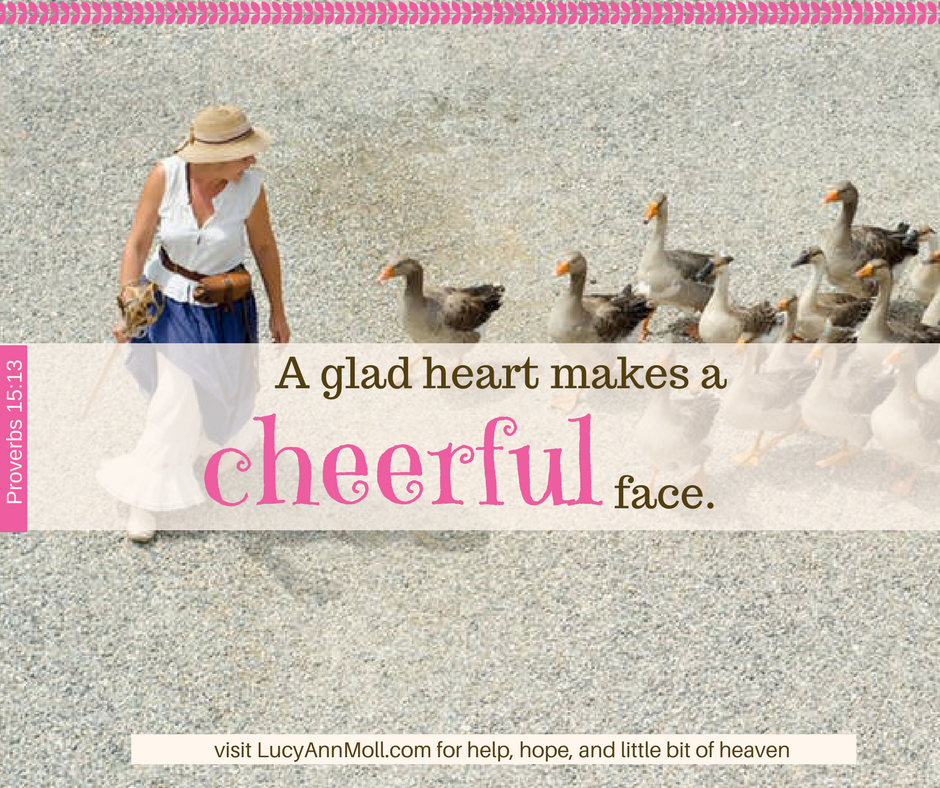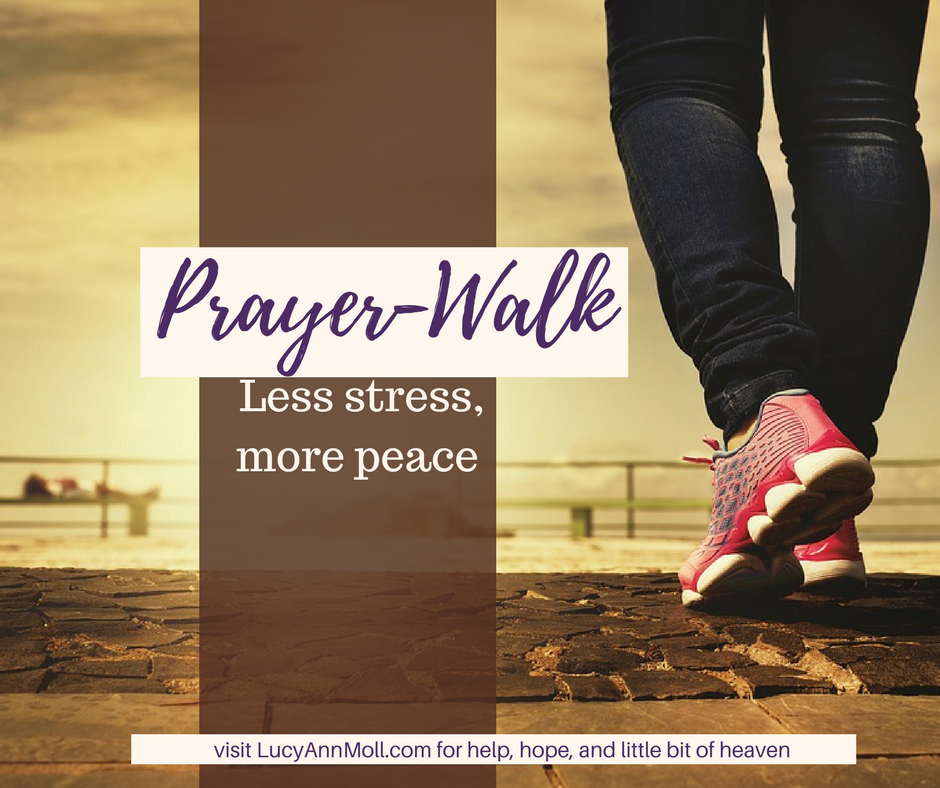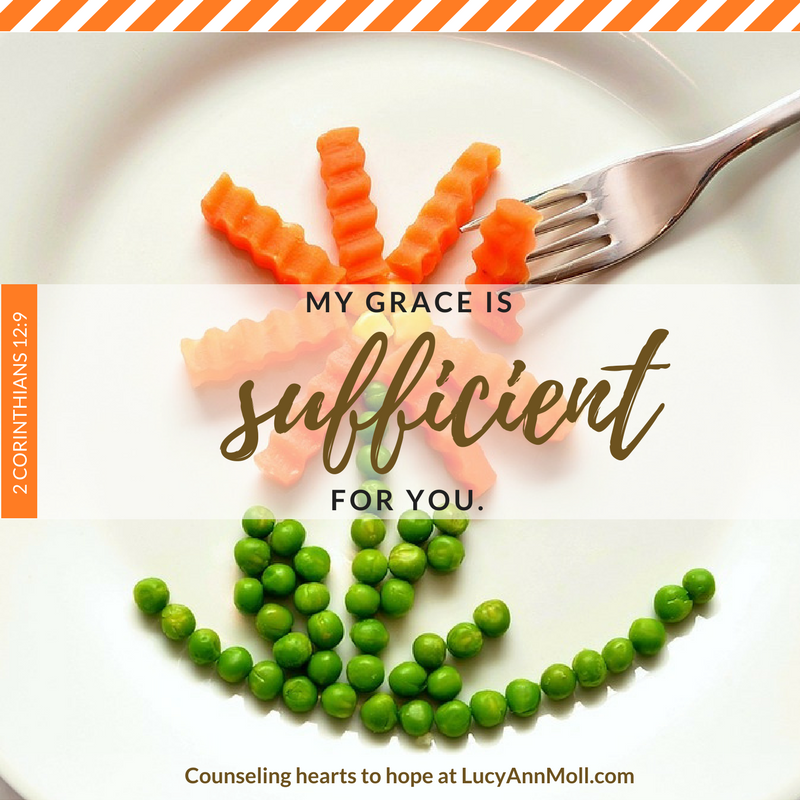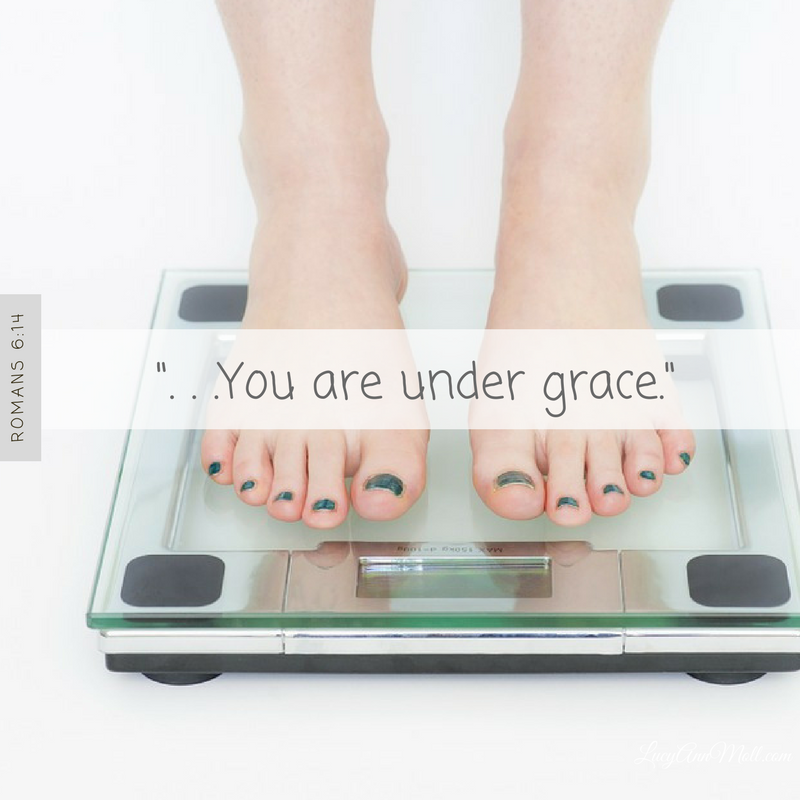by Lucy | Mar 6, 2018 | biblical counseling, whole health wellness
 Rest. Would you love to rest like Jesus? Eliza Jane Huie shares practical insights to enjoy the guilt-free rest you need. Her article appeared first on the Biblical Counseling Coalition website and is used with permission.
Rest. Would you love to rest like Jesus? Eliza Jane Huie shares practical insights to enjoy the guilt-free rest you need. Her article appeared first on the Biblical Counseling Coalition website and is used with permission.

If sleep were a spiritual gift, then my husband has it. Not only does he have the amazing ability to take cat naps just about anywhere he chooses, but I have never known him to lose sleep over anything. If he needs rest, he simply finds a place he can lay down or sit, closes his eyes, and within a few minutes he is out. His slow breathing (and sometimes snores) indicates that he is not just resting his eyes. He is asleep. Everything else will wait while he rests. I admit there I times I really envy him.
I am the total opposite. Not only do I need all the right conditions to go to sleep (peaceful surroundings, darkness, and a quiet mind), but I need all those conditions to stay there.
It is not only sleep that does not come easy to me, but rest is also hard. The demands of the many hats I wear can take over my life, and I am continually busy with the next thing and thinking about the next thing after that.
As I sat one morning feeling familiarly overwhelmed and thinking of all I had to do that morning, that day, and that week, I wondered what I would say to myself if I had to counsel myself on this issue of resting in God. So, this blog post is written to me, knowing all I know about myself. You can listen in, but I write to me.
Dear Self,
You have a ministry and calling. And you are a wife and helper, a mother, a teacher, and a friend. You are a part of the body of Christ and you need to serve and worship. Also, you also are tasked with the duties of planning, organizing, and leading in multiple areas of life. You are busy. Indeed you have many commands that the Lord has given to you and you desire to fulfill them. But he has also called you to rest.
3 Definitions of Resting
1. Resting is trusting God.
It is trusting God with all the demands and busyness. It is agreeing with God that you have limits. Rest says everything is not in your hands or in your control. Allowing yourself to live within your limits allows you to see God work despite your efforts but it also causes yourself to see that He will ultimately take care of all that He has given you.
2. Resting is imaging God.
When you rest you imitate God. Despite how life may feel, you are not busier than God
Click & Tweet!
. He will always have more to do than you do. Even at the very beginning, at the very unfolding of history we see a very active God setting aside time from his creative work and resting (Genesis 1-2).
3. Resting is obeying God.
The demands of life are loud. They fight for attention every moment of the day. So much so that they can drown out the commands of our Lord. The reality that God has told you to rest can easily be forgotten. Obedience may feel more important to you when you are doing lots of work but setting it aside and remembering that he has called you to rest is also obeying Him. He has called you to rest.
Yes, my soul, find rest in God; my hope comes from him. Truly he is my rock and my salvation; he is my fortress, I will not be shaken. My salvation and my honor depend on God, he is my mighty rock, my refuge. Trust in him at all times, you people; pour out your hearts to him, for God is our refuge. Psalm 65:2
Making Peace with Resting
Just like sleep, rest does not come easy for me. I never seem to have the right conditions. At times it feels like I don’t have the ability to simply rest. At other times I fight against it. But as I sit and counsel myself I agree that this is exactly what I must embrace as I juggle all the busyness of life. As you have listened to my own personal counseling session perhaps you too can relate?
Lord, help me to trust you, to be more like you, to obey you, to rest.
Counseling Hope to Your Heart,

by Lucy | Jan 2, 2018 | biblical counseling, emotions, whole health wellness
 Who doesn’t need a mood-boost? A routine prescription for women with depression and anxiety is exercise. Regular physical activity of any sort can lift sagging spirits.
Who doesn’t need a mood-boost? A routine prescription for women with depression and anxiety is exercise. Regular physical activity of any sort can lift sagging spirits.
A glad heart makes a cheerful face, but by sorrow of heart the spirit is crushed. Proverbs 15:13, ESV
Even Exercise-Lite Boosts Your Mood
At the Cooper Aerobics Research Institute, 120 volunteers followed the standard gym recommendations and another 120 volunteers tried exercise-lite. Both groups on average reduced their blood pressure by eight points, lowered total cholesterol, and gained about the same amount of muscle and dropped about the same amount of fat.
What about boosting endorphins while exercising-lite? They got that too.
But for a bigt boost, it seems you must stress muscles for the release of the endorphins. Remember, you don’t have to train for the Olympics to get a mood boost from exercise.
Click & Tweet!
So get up and get moving.
And break a sweat! A shiny glow looks good on you.
Click & Tweet!
Pick an exercise you like! For me, walking wins. Early in the day, I grab my sneakers and walk. In the evening, I stretch and do some simple exercises like push-ups. Once you figure out which exercise works best for you, make a plan and do it.
Making a New Mood-Boost Habit
Making a new habit and sticking with it is the most difficult part for most of us because new habits must be formed. Beth, a soft-spoken, 20-something who has mild anxiety, would like to lose five pounds and feel physically better.
Then I told her about the mood-boosting effects of exercise, and she said she’d start for sure. Awareness is the first step, isn’t it?
What’s next? Here are 3 quick tips toward making a new mood-boost habit:
1. Put it on your calendar. You write “dentist visit” on your calendar, don’t you? So why schedule exercise? Be specific. Select a time, days, and place.
2. Be realistic. Be safe. Most people the greatest success in forming a new exercise habit when they build on beginning successes. If you choose walking and are a healthy beginner, start with a daily 10-minute walk at a moderate pace, for instance. The next week add 5 minutes to your daily walk. Add another 5 minutes the following week and so on. Once you reach 30 to 60 minutes of walking daily, you’ve developed an amazing mood-boost habit. (Check with your doctor before beginning an exercise program.)
3. Reward yourself. Each time you complete your exercise, give yourself a small reward. It could be as simple as a smiley face on your calendar to something a bit more extravagant, such as $5 toward a purchase. At the end of the week, grab your stash and go for lunch with a friend, take in a movie, or buy something fun.
Counseling Hearts to Hope,

by Lucy | Dec 26, 2017 | emotions, relationships, whole health wellness |
 PRAYER-WALK: When you prayer-walk scripture, stress lifts and your peace returns. And it’s best to prayer-walk outside.
PRAYER-WALK: When you prayer-walk scripture, stress lifts and your peace returns. And it’s best to prayer-walk outside.
Here’s why. Here’s how.
Have you trudged through a day when everything went wrong? Maybe your computer crashed, or the pet barfed on the carpet. Perhaps you got really bad news. If you’re up to your eyebrows in quick-sand stress, you need peace now. Right?
Here’s a solution: Prayer-walk scripture. It gets you away from the distractions of technology, as long as you leave you phone at home, of course! Says bible translator Jordan Monson:
For two thousand years, the most private and undistracted place was behind the closed door. Now, the noise has relocated indoors. If our computers and devices are near, it’s the worst place to try to pray. Walking through Times Square is less distracting than sitting alone in a room full of technology.
4 Reasons!
When you prayer-walk a scripture, at least 4 awesome things happen:
- your stress lessens
- you connect deeply with God
- you get exercise
- you think on heavenly things, squelching anxiety
1. De-stress!
Have you ever had a week or a month or a year when one stress after another slammed you like a hurricane? Walking helps relieve stress, thus improving your mood and mental outlook. It also reduces muscle tension and stress hormones as well as high-pressure emotions like anxiety, anger, and depression.
2. Connect with God
When you prayer-walk a scripture — that is, talk with God about a specific bible verse and think on what it says and its application — you readjust your priorities and put first things first.
Seek first the kingdom of God and his righteousness, and all these things will be added to you (Matthew 6:33).
For instance, while prayer-walking and thinking on Psalm 23:1, you might reflect on the meaning of “I shall not want” and tell God you give up self-rule and submit to him. In my walks while praying this verse, God has impressed on my heart the truth that he is in control. The result? I sense his strength and comfort, and worship him.
3. Move It
Walking unleashes the body’s endorphins, the feel-good neurotransmitters. And the motion loosens tight muscles and reduces mental stress too.
No doubt you’ve heard that the best exercise is the one you’ll actually do. If not walking, what exercise gets you moving? Swimming, biking, dance, or gardening? And how much exercise do you need? Dr. Edward R. Laskowski recommends 150 minutes of moderate aerobice exercise weekly.
4. Think UP
God tells us what to think on: heavenly things.
Whatever is true, whatever is honorable, whatever is just, whatever is pure, whatever is lovely, whatever is commendable, if there is any excellence, if there is anything worthy of praise, think about these things. (Philippians 4:8)
But your mind want to wander, right? When this happens to me, I refocus on the scripture I’m praying. Since I’m prayer-walking a single scripture verse or passage, this is simple to do. I simply go back to where I left off, or begin again.
How to Prayer-Walk
Here’s what my prayer-walk looks like. First, I choose a scripture. Psalm 23 is a favorite. I see the word pictures as I walk.
I say, “The LORD is my Shepherd, I shall not want” and picture a sheep happily resting on shoulders of a strong, gentle shepherd. I am the sheep.
And pray something like–
Father, you know my Honda’s transmission is acting up again. You know my needs. I am asking that you give me wisdom to make the right decision. Thank you that I have a car that runs.
Now the next verse. “He makes me lie down in green pastures.” My mind’s eye sees rolling hills of lush grass and a stream. I utter these words: Oh, yes, rest! Thank you, Lord, for the reminder that I need rest and that it’s good. It’s not a luxury. I don’t have to run around like a manic squirrel, trying to do everything that people ask.
What About Wacky Weather?
During crazy-bad weather, prayer-walk scriptures in the comfort of home. Simply walk in place. The more you move your arms, the higher your heart rate. Or choose a treadmill at a gym.
Most important: Get started. 🙂
Counseling hearts to hope,

by Lucy | Oct 24, 2017 | biblical counseling, emotions, whole health wellness |
 BAD HEALTH? Whether you or a loved one has bad health, doubts may rush in and twirl you like carnival ride. You may ask yourself:
BAD HEALTH? Whether you or a loved one has bad health, doubts may rush in and twirl you like carnival ride. You may ask yourself:
- “What did I do to deserve this?”
- “Will I (or my friend) ever get better?”
- “Where’s God? How come he’s not helping?”
You may also experience anger, despair, and fear. Anger over waiting. Despair over pain. And fear of invasive tests, fear of bad news, even fear of God’s disfavor.
So have you faced bad health? Or, has a loved one of a friend had an awful illness? What emotions coursed through your veins?
My Bad Health Story
No physical form of bad health runs in my family. But mental problems do, namely anxiety, depression, and bipolar I disorder.
My dad had has the latter. During my childhood, he dad walked in the shadows of depression, rarely smiling. And he often spoke in monotone. In my early teens, my mom and brother convinced him to get psychiatric help at a hospital.
I had no idea how to handle my dad’s depression and occasional manic episodes.
Click & Tweet!
In fact, I figured I was the problem. But I was wrong. Can you relate? My child mind thought. . .
If only I got better grades. . .
If only I kept my room clean. . .if only.
But there was nothing I could do to help, and this made me sad. Eveyone in the family found ways to deal with the pain of a loved one with bad health. For instance, my mom devoured romance novels. Potato chips and French onion dip put pounds on her frame. And my brother managed, barely. In grade school he pulled Cs, Ds, and Fs, though his IQ topped 140. Later, he got high on weed a lot. And later still, porn became his drug of choice.
Me? I still tried on perfectionism. Miss goody two shoes, I attempted to do everything right and learned it didn’t work. Yet I kept trying. Only later, when I trusted in Christ, I found my reason to hope and heal.
But he said to me, “My grace is sufficient for you, for my power is made perfect in weakness.” Therefore I will boast all the more gladly about my weaknesses, so that Christ’s power may rest on me. 2 Corinthians 12:9
Mind-Body Connection
Bad health may have an emotional cause or physical root–or both. Heart disease, cancer, multiple sclerosis, lupus, fibromyalgia, diabetes, hypothyroidism, and other illness are physical. Doctors can indeed diagnose them through tests. But illnesses with a physical cause often take an emotional toll too.
Some types of bad health, like hypothyroidism, include the symptom of depressed mood, for example. Also, depending on the illness, there are physical changes such as bloating and hair loss. In addition, medications used to treat bad health may have nasty side effects. Soon the ill person may feel helpless and hopeless. Spiritually, she may cling to Jesus, or she may blame God for allowing the illness and wrecking her life.
What to Do
When a friend or family member faces bad health, how can you help? Well, they’re are helpful things to say and too. And there are cringe-worthy comments to avoid. Here are a few of each.
To say and do:
1. Say “I admire your courage.”
2. Ask, “Can I grocery shop, take you to the doctor, or clean the bathroom?”
3. Play an uplifting CD or make a delicious, healthy soup (see below).
To avoid:
1. “I know exactly how you feel.” You don’t.
2. Call your friend and talk a long, long time. Stick to 10 minutes unless she asks to talk longer. Add another 10 minutes tops. Use a timer.
3. Pretend nothing is wrong, like my family did.
What ideas have worked for you? Or have blown up in your face? My own personal, embarrassing piece of bad advice (that I no longer do): Telling someone how she should feel!
Click & Tweet!
May I Share a Recipe?
This first appeared in my book The Vegetarian Child (Perigee, 1997). I hope you like it. It’s make a great meal for someone in bad health. Or good health. It’s that delicious.
Creamy Broccoli Soup
A creamy soup with no cream? That’s right. The secret is pureed potatoes, which add extra nutrients to the soup without a smidgeon of fat.
2 cups chopped fresh broccoli
3 ½ cups vegetables stock or 3½ cups water with 1 vegetable bouillon cube
4 potatoes, peeled and cubed
½ onion, chopped
½ to 1 tablespoon fresh cilantro
Salt and freshly ground black pepper to taste
Place all the ingredients except the salt and pepper and ½ cup vegetable stock or water in a large pot. Bring to a boil, cover, and cook over medium heat until tender, about 20 minutes. Set aside ½ cup broccoli to use as garnish.
Puree the remaining contents of the pot, a batch at a time, in a blender or food processor. Be sure to fill the blender or food processor no more than 2/3 full. Return the pureed soup to the pot. Add the remaining vegetable stock or water, season with the salt and pepper, and simmer 5 minutes. Pour the soup into individual bowls and top each one with the reserved broccoli garnish. Serve warm.
Serves 6. Per serving: 91 cal; 3g prot; 0.2g fat; 21g carb; 0 chol; 368mg sod; 2.7g fiber
Counseling Hearts to Hope (and healing),

by Lucy | Oct 3, 2017 | biblical counseling, biblical counseling, whole health wellness |
 DIETING: Millions of women are on a diet now. Is dieting wrong in God’s eyes? Is it (gulp) a sin?
DIETING: Millions of women are on a diet now. Is dieting wrong in God’s eyes? Is it (gulp) a sin?
Diets. Gotta love them, gotta hate them.
We women love them because losing weight helps us look better and feel energetic. We hate them because we may feel deprived, grouchy, and fearful that we’ll gain back the pounds we worked hard to lose.
I have a crazy Weight Watchers story. It begins what I was age 10. You can read part of my crazy story here in the intro of my eBook, Fit for Life.
Back to the BIG question:
So Is Dieting Sinful?
The quick answer: no. In itself dieting isn’t bad. In fact, caring for yourself by eating right is good. But dieting can turn bad. It depends on your attitude. What’s your attitude regarding food and self image? Do you hate how your jeans fit? Do you call yourself awful names if you go off your diet?
If you fear that eating certain favorite treats like ice cream, chips or cookies will prompt you to binge or if you believe that eating your favorite treat is “wrong” (even if the Bible doesn’t teach that it is), then you must not eat it, says Elyse Fitzpatrick, a leading biblical counselor and author of several books including Love to Eat, Hate to Eat.
The bible says that if you compromise your conscience, you sin.
He who doubts is condemned if he eats, because his eating is not from faith; and whatever is not from faith is sin. (Romans 14:23)
This passage primarily speaks to food offered to idols (which was a problem when the apostle Paul wrote this epistle), yet the biblical principle holds true: anything that compromises your faith is sin, including faithless eating.
The upshot: If you believe dieting or cheating on your diet is a sin, then it is sin for you. If not, then feel free to choose a weight-loss plan.
Listen to Paul’s words on sin and grace.
For sin shall no longer be your master, because you are not under the law, but under grace. (Romans 6:14)
If you choose to lose weight by dieting, select one focused on lifestyle changes and teaches healthy habits to keep you Fit for Life.
What About Gluttony?
 Derived from the Latin gluttire meaning to gulp down or swallow, “gluttony” means over-indulgence of food or drink to the point of extravagance or waste, gluttony has a spot on the infamous list of the seven deadly sins. While I’ve never heard a sermon on gluttony, the Bible speaks against it. (Check out Proverbs 23:20,21.)
Derived from the Latin gluttire meaning to gulp down or swallow, “gluttony” means over-indulgence of food or drink to the point of extravagance or waste, gluttony has a spot on the infamous list of the seven deadly sins. While I’ve never heard a sermon on gluttony, the Bible speaks against it. (Check out Proverbs 23:20,21.)
In a strange twist, under-indulgence of food is also gluttonous because it is an extreme use of food. For some, the problem is anorexia nervosa, which troubled a food disordered counselee, who eventually found healing as she determined to put God first and to bring glory to him in everything she did. We also kept in regular contact with her medical doctor and nutritionist.
She learned to enjoy eating food, a gift of God. Indeed. Paul declared,
For everything God created is good, and nothing is to be rejected if it is received with thanksgiving, because it is consecrated by the word of God and prayer. (1 Timothy 4:4,5)
4 Quick Self-Care Food Tips
1. Cut out or reduce sugary drinks like soda. (When my husband corked the a while back, he lost 15 pounds in three months and feels more energetic, especially in the afternoon.)
2. Drink a glass of water before a meal or when you feel hungry between meals. Drinking water makes you feel fuller, helping you to reduce portions easily. Hycration also helps you think better.
3. Eat colorfully. Have lots of veggies and fruit on hand, washed and ready to eat. You’re less likely to crunch a cookie when you’ve set out baby carrots, snap peas, bananas, and apples.
4. Decide NOT to diet. A diet is an eating plan you go on and off, typically regaining the weight you lost. Instead, listen to advice from MayoClinic.com:
Combining a healthier diet and more activity is the best way to lose weight and keep it off for the long term. Take your weight loss and weight maintenance one day at a time and surround yourself with supportive resources to help ensure your success.
This is exactly the approach of my ebook Fit for Life, with a strong biblical emphasis. God created you to shine.
“Whether, then, you eat or drink or whatever you do, do all to the glory of God.” 1 Corinthians 10:31
Counseling hope to your precious heart,

by Lucy | Sep 26, 2017 | biblical counseling, emotions, whole health wellness
 What if…your worst fear actually comes to pass? Then what? Listed in our Heart2Heart Counselor Directory, biblical counselor Suzanne Holland gives real answers to scary questions and provides hope. Suzanne is a premier counselor. Her article appeared first here at BC4Women.org and is used with permission.
What if…your worst fear actually comes to pass? Then what? Listed in our Heart2Heart Counselor Directory, biblical counselor Suzanne Holland gives real answers to scary questions and provides hope. Suzanne is a premier counselor. Her article appeared first here at BC4Women.org and is used with permission.

“What if it’s cancer? How will we deal with that? I don’t want to leave my husband and children alone!”
“Or what if my car breaks down? I barely have enough money to cover my expenses! How will I get to work?
“And what if the pain gets worse? How will I cope with it? How will I function?”
All of these are legitimate questions asked by believers who are struggling to deal with a circumstance or eventuality that they feel ill-equipped for. There are so many things that can happen in this fallen world we live in. Many of them are pretty frightening.
As I read in Daniel 3 about Shadrach, Meshach, and Abednego, I felt certain that they were frightened of that furnace. Who wouldn’t be? Nebuchadnezzar had erected a gold statue and commanded all people to bow to it. These three young men knew they could not do that.
I can imagine what their conversation was like, as it became clear that their allegiance to the One True God would stir up the wrath of this powerful king. Maybe, they asked one another,
- What if we can’t stand our ground?
- What if we lose our nerve?
- And if we do remain steadfast, how will we endure the furnace?
- Where will we get the courage to finish well?
I don’t know for sure if this conversation or one like it took place. However, I am pretty sure it would if it were me and my friends! I would be afraid and anxious about it for sure, at least in my own strength. But these three young men clearly were not counting on their own strength to see them through. They were depending on their God. When they appeared before the king, they spoke these words:
O Nebuchadnezzar, we do not need to defend ourselves before you.
If we are thrown into the blazing furnace, the God whom we serve is able to save us. He will rescue us from your power, Your Majesty.
But even if he doesn’t, we want to make it clear to you, Your Majesty, that we will never serve your gods or worship the gold statue you have set up. (Daniel 3:16-18)
3 Crucial Convictions in Your “What If”
They express three important convictions in this passage. And we need to keep in mind as we face the “what ifs” of our lives.
1. Remember God Alone Has Ultimate Power
First, they express the fact that the king has no real power over them. In saying, “we don’t need to defend ourselves before you,” they are saying that he is not a threat. They know that the God they serve is far more powerful, and He will be their defender. They let the king know that they have complete confidence in God’s ability to save them out of that fire.
2. Know God Will Deliver You
Second, by fearlessly admitting the possibility that He may not save them in an earthly sense, they are letting the king know that they don’t fear death. Since they worship a God who is the master of eternity, they have a great hope of what lies on the other side of that furnace, should they perish there. In other words, they are telling him that, whether they live or whether they die, their God will deliver them from his hand.
3. God Alone Is Worthy of Worship
Finally, Shadrach, Meshach, and Abednego make it very clear to the king that nothing he does can ever make them worship any other god. No matter what he threatens, no matter how painful the consequence, they absolutely will not become idolaters.
Answers to Scary Questions
So, what’s the takeaway for us? How can we apply this passage to our what-ifs? Well, I would like to suggest that, instead of saying what-if-this or what-if-that, let’s change it up. Let’s replace “what if” with “even if.”
“Even if it’s cancer, I know that my God can rescue me from it. He can heal me of this cancer, but even if He doesn’t, He will deliver me. We will bring me to heaven, where there will be no more pain or suffering. I am trusting in Him. And I refuse to make restored health an idol. God has cared for my family all this time, and He will continue to do so, with or without me. I refuse to give in to worry.”
“Even if my car breaks down, I will not give into fear or panic. Jesus said that God cares so much for me that He has numbered every hair on my head. It is He who has provided for me up until now. Why should that change? I refuse to give in to fear.”
“Even if the pain gets worse, I will recognize that circumstances will always be changing, but my God never does. He is faithful no matter the severity of my pain or disability. Even if I can’t do the things I’ve always done, He will provide the help that I need. Or, He’ll remove the necessity of the task. I refuse to give in to panic about my pain.”
Think About It
What are the “what-ifs” of your life today, friend?
Click & Tweet!
Are you fearful or worried about the future? Remember that fear can lead to idolatry if we do not take it captive. Bring those fears to the Lord, remembering His faithfulness and love. Then, proclaim to everyone you know the truth about your great God. Let them see that you will not bow down to the idols of worry and fear about earthly things.
As you go through the fiery trial, let them see Jesus going through it with you, just as King Nebuchadnezzar saw four men walking around in the fire when He had thrown in only three. That same confidence that led them through their fire will lead you through yours.
Even if…
Resources from Lucy
You may like this article:
Biblical Approach for Healing PTSD
Or this easy-to-download eBook:
Fit for Life: A Biblical Guide to Getting Fit (and Losing Weight)
Need prayer or want a free biblical counseling consultation by phone? Send me a secure message here.
Counseling Hope to Your Heart,

 Rest. Would you love to rest like Jesus? Eliza Jane Huie shares practical insights to enjoy the guilt-free rest you need. Her article appeared first on the Biblical Counseling Coalition website and is used with permission.
Rest. Would you love to rest like Jesus? Eliza Jane Huie shares practical insights to enjoy the guilt-free rest you need. Her article appeared first on the Biblical Counseling Coalition website and is used with permission.![]()


 Who doesn’t need a mood-boost?
Who doesn’t need a mood-boost?  PRAYER-WALK: When you prayer-walk scripture, stress lifts and your peace returns. And it’s best to prayer-walk outside.
PRAYER-WALK: When you prayer-walk scripture, stress lifts and your peace returns. And it’s best to prayer-walk outside. BAD HEALTH? Whether you or a loved one has bad health, doubts may rush in and twirl you like carnival ride.
BAD HEALTH? Whether you or a loved one has bad health, doubts may rush in and twirl you like carnival ride.  DIETING: Millions of women are on a diet now. Is dieting wrong in God’s eyes? Is it (gulp) a sin?
DIETING: Millions of women are on a diet now. Is dieting wrong in God’s eyes? Is it (gulp) a sin? What if…your worst fear actually comes to pass? Then what?
What if…your worst fear actually comes to pass? Then what?

